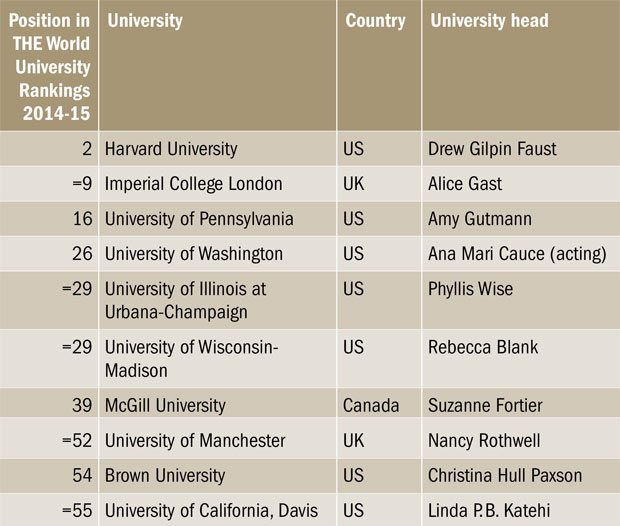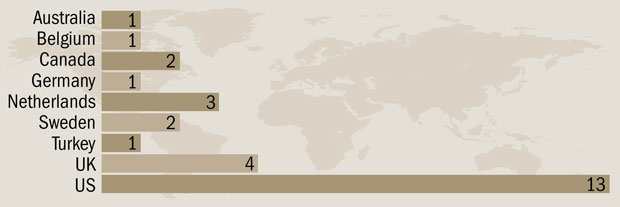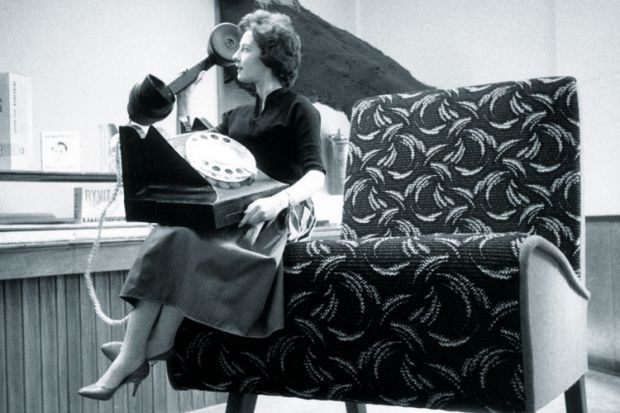Just 14 per cent of the universities ranked in the top 200 in the world are female-led, a major higher education conference will hear next week.
Figures based on data from the Times Higher Education World University Rankings, to be presented at the British Council’s Going Global conference in London on 2 June, show that only 28 of the world’s top 201 universities have a female leader. And that number will soon fall to 26, with men taking over the reins at the universities of Alberta and Miami by the end of this summer.
Nearly half the female leaders (46 per cent) are at the helm of universities in the US, while 14 per cent lead an institution in the UK. These nations also dominate the list of the top 10 institutions led by women: seven are in the US, two are in the UK and one is in Canada.
Although the US and the UK have by far the most institutions in the overall top 200, 74 and 29 respectively, the countries still have much work to do to reduce the gender gap at the top of their universities. Just 17.6 per cent of the US institutions ranked in the top 200, and 13.8 per cent of the UK institutions in that elite group, are led by women.
Sweden is the country with the highest percentage of women leading universities in the list – two out of five of its institutions have a female president or vice-chancellor. The Netherlands has 11 institutions in the top 200, and three are led by women.
Strikingly, 19 of the 28 countries represented in the top 200 have no female university leaders in that elite cohort, according to figures that will be presented at a session on the THE rankings by Miguel Antonio Lim, EU Marie Curie doctoral fellow at Aarhus University in Denmark.
Dame Nancy Rothwell, vice-chancellor of the University of Manchester (eighth among the elite institutions run by a woman and 52nd in the overall top 200), said the paucity of female leaders was “most likely a combination of factors: huge time commitment, few role models, lack of confidence”.
Regarding disciplinary backgrounds, nearly half (46 per cent) the female leaders of a top-ranked university are social scientists, compared with less than a quarter of men (23 per cent). Conversely, the most popular discipline for male leaders is natural sciences – the field of 27 per cent of men in the list, but only 18 per cent of women.
Phyllis Wise is chancellor of the University of Illinois at Urbana-Champaign, the fifth highest-ranked university led by a woman and joint 29th in the overall world ranking. She said the focus should not be on “reaching some target number” but on female leaders helping “those women who are earlier in their careers to be ready to walk through these doors when they open”.
Her point was echoed by Rebecca Blank, chancellor of the University of Wisconsin-Madison, which sits jointly with Urbana-Champaign at 29th in the WUR. “As long as people have a [fixed] view of what a dean or president should look like, women will have difficulty moving into these jobs,” she said.
Top 10 institutions led by women

Female-led top-200 institutions





